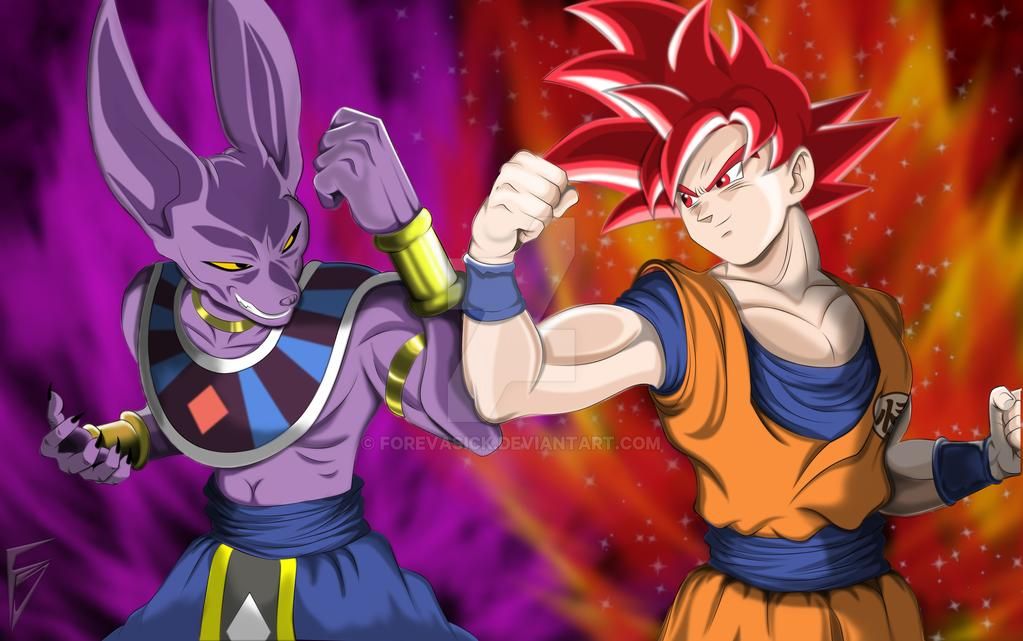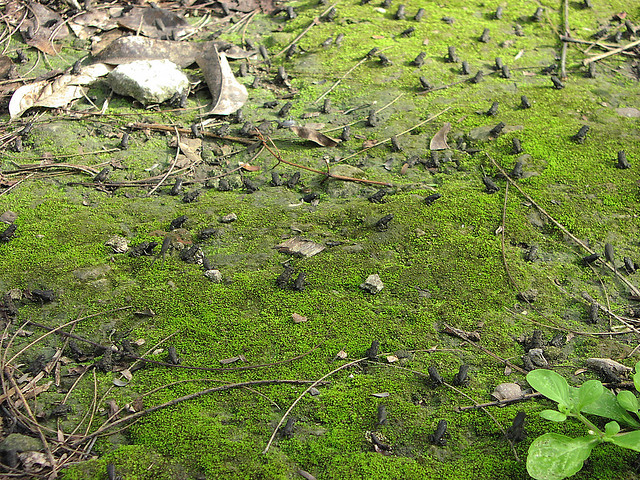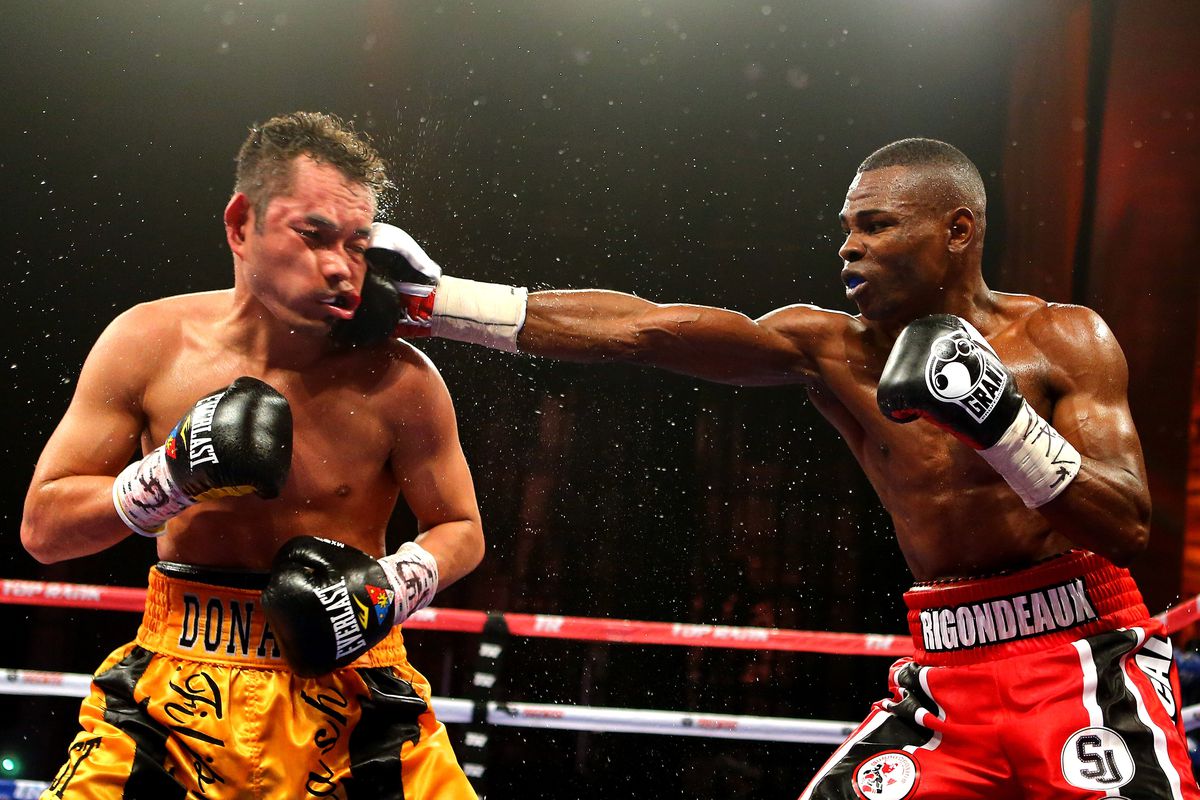Here are some of my thoughts on it so far. To set the stage, think of it as a battle of the gods, and I'm not talking about the DragonBall Super movie though Beerus does look Egyptian.
 BY Forevasick[/caption]
BY Forevasick[/caption]At the time, gods were believed to be localized to a degree. Pharaoh himself was supposed to be an incarnation of Ra or Horus. He was responsible for maintaining "Maat," the order in the country. From the flow of the Nile, crop growth, to the Sun moving across the sky, he was in charge.
Yahweh was just some mountain god in the east. One of many in the region and not that strong compared to Egypt's gods, at least as far as Pharoah was concerned.
Why do I mean by that?
The perception was when you do anything, even go to war, it's directly tied to the supernatural. If you went to battle, it was your god against their god, the strongest wins. Every fight was a holy war.
If you lost, your god(s) were weaker. The Hebrews, Yahweh's people, were enslaved, so what does that indicate?
And then Yahweh sends Moses and Aaron to pick a fight with the Egyptian pantheon. One against many.
"Pharaoh said, "Who is the Lord, that I should obey him and let Israel go? I do not know the Lord and I will not let Israel go." Exodus 5:2The fight began. There are two trains of thought here. One is God doing an act of uncreation. The other is God showing that Pharoah and the Egyptian gods can't stop Him from doing whatever He wants in their country.
As I read, I thought about a few things.
"Then the Lord said to Moses, "Go to Pharaoh and say to him, 'This is what the Lord says: Let my people go, so that they may worship me. 2 If you refuse to let them go, I will send a plague of frogs on your whole country. 3 The Nile will teem with frogs. They will come up into your palace and your bedroom and onto your bed, into the houses of your officials and on your people, and into your ovens and kneading troughs. 4 The frogs will come up on you and your people and all your officials.'"
5 Then the Lord said to Moses, "Tell Aaron, 'Stretch out your hand with your staff over the streams and canals and ponds, and make frogs come up on the land of Egypt.'"
6 So Aaron stretched out his hand over the waters of Egypt, and the frogs came up and covered the land. 7 But the magicians did the same things by their secret arts; they also made frogs come up on the land of Egypt." Exodus 8:1-7

Sorcerers: "We can do that too."
Pharaoh: "Make it stop."
*Sorcerers try*
P: "Well..."
S: Sorry...
P: "Call Moses and Aaron"
"Pharaoh summoned Moses and Aaron and said, "Pray to the Lord to take the frogs away from me and my people, and I will let your people go to offer sacrifices to the Lord."Two thoughts, first, Moses sarcasm. "I leave you the honor..." Here you go, I'll let you think you're still somewhat in charge. Secondly, why didn't Pharoah say "now" instead of tomorrow?
9 Moses said to Pharaoh, "I leave to you the honor of setting the time for me to pray for you and your officials and your people that you and your houses may be rid of the frogs, except for those that remain in the Nile."
10 "Tomorrow," Pharaoh said.
Moses replied, "It will be as you say, so that you may know there is no one like the Lord our God. 11 The frogs will leave you and your houses, your officials and your people; they will remain only in the Nile." Exodus 8: 8-11
Probably pride. This next passage is interesting.
"Then the Lord said to Moses, "Tell Aaron, 'Stretch out your staff and strike the dust of the ground,' and throughout the land of Egypt the dust will become gnats." 17 They did this, and when Aaron stretched out his hand with the staff and struck the dust of the ground, gnats came on people and animals. All the dust throughout the land of Egypt became gnats. 18 But when the magicians tried to produce gnats by their secret arts, they could not.They couldn't create life from the sand. They could turn wood into a snake...interesting. A Note from the Cultural Backgrounds Bible says this:
Since the gnats were on people and animals everywhere, 19 the magicians said to Pharaoh, "This is the finger of God." But Pharaoh's heart was hard, and he would not listen, just as the Lord had said." Exodus 8: 16-19
"For the ancient Egyptians, the concept of the "finger" of a deity represented something dangerous and powerful that could bring about good or evil. The "finger of Seth" was feared for the harm it had done to the god Horus, while the "finger of Thoth" was praised for the threat it posed to the evil Apophis. By attributing this statement to the Egyptian magicians, the Biblical text presents an admission on their part that they are powerless in the face of one whom they perceive to be a hostile deity. They now recognize that they and their land are under divine attack.Let's go back to Exodus 8:10 with this in mind. "Moses replied, "It will be as you say, so that you may know there is no one like the Lord our God."
This same phrase occurs in 31:18 but in a different context. There, the two tablets of stone that record God's covenant with the Israelites are said to be "inscribed by the finger of God." The verse clearly does not imply a hostile threat but still seems to invoke the image of a potent and mystical God. Thus, "finger" is probably a symbol of power and ability."
Paraphrase: "So that you know Yahweh is stronger than you or your gods." He also gave the Egyptians the finger.
"Then the Lord said to Moses, "Get up early in the morning and confront Pharaoh as he goes to the river and say to him, 'This is what the Lord says: Let my people go, so that they may worship me. 21 If you do not let my people go, I will send swarms of flies on you and your officials, on your people and into your houses. The houses of the Egyptians will be full of flies; even the ground will be covered with them.It looks like the plague of gnats was still going when the biting flies hit—a one-two punch from Yahweh. God's been throwing jabs at Egypt's gods, and now he's getting more serious.
22 "'But on that day I will deal differently with the land of Goshen, where my people live; no swarms of flies will be there, so that you will know that I, the Lord, am in this land. 23 I will make a distinction between my people and your people. This sign will occur tomorrow.'" Exodus 8:20-23

Then came the final plague, the death of all the firstborn, unless they did what Yahweh said; slaughter a lamb and put its blood on the doorpost. That is a pointer to the blood of Jesus, the Lamb of God, later on.
It appears that Pharoah had at least a week, maybe even two, to change his mind and let the Hebrews leave.
"The Lord said to Moses and Aaron in Egypt, 2 "This month is to be for you the first month, the first month of your year. 3 Tell the whole community of Israel that on the tenth day of this month each man is to take a lamb for his family, one for each household...Take care of them until the fourteenth day of the month, when all the members of the community of Israel must slaughter them at twilight." Exodus 12:1-3; 6I was listening to Heiser's podcast on this, and he mentioned that this was a direct attack on the primary god-who incarnates in Pharaoh. When he dies, they do a ceremony so the god can incarnate in the firstborn.
Yahweh just took out the future leadership in Egypt.
I can't help but think of the cross when God-incarnate died. The Roman gods had won, and then Jesus rose from the dead. He beat death.

The same couldn't be said back then of Egypt's gods. There were zero resurrections.
When you read the Bible with an eye to the supernatural and natural being woven together, one affecting the other, it makes it more vibrant. Especially when you use the same lens to look at today's world, it's more magical.